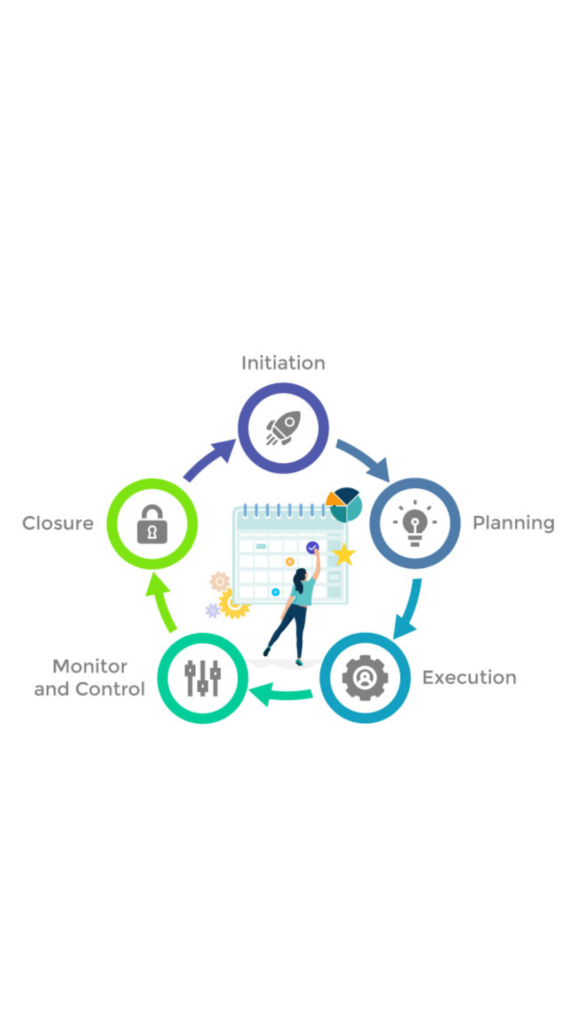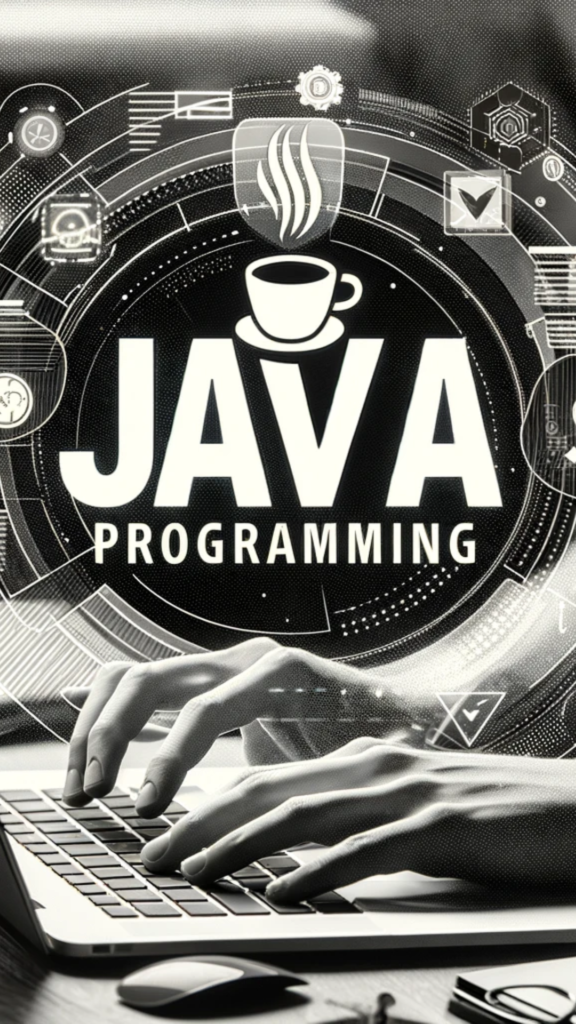Define Project development:-
It is the process of achieving the company’s goal that involves the planning and organization of a company’s resources to move certain tasks, events, or duties toward completion.
It is the application of the process that deals with the method, skills, knowledge, and experience to achieve the specific objectives of the project.
According to the project acceptance criteria within the agreed parameters. It is a discipline that encompasses planning, executing, monitoring, and closing.

Project Idea: Simple To-Do List Application:-
Set Up Your Development Environment:- firstly you have to set up your environment and install a proper system to work on it.
- Install Java Development Kit (JDK): In your system install the kit of Java development to work on it and ensure that you have the latest version of the JDK installed on your computer or laptop. You can download it from anywhere online like the Oracle website.
- Install an Integrated Development Environment (IDE): After the installation of the Java development kit then again install IntelliJ IDEA, Eclipse, and NetBeans are popular IDEs on your system. For beginners, IntelliJ IDEA Community Edition is recommended because beginners should start. Download it from the JetBrains website.
Create a New Java Project:- After completing the process of installation on your system then start doing your new project.
- First of all, Open your IDE in your system and create a new project whatever you want. Set up the project structure with a main class and a package for your application.
Plan Your Application:- make planning to perform perfectly all the tasks to make a new project well.
- Features:
- Add various types of new tasks to perform.
- After completing mark tasks as complete.
- It has the ability to remove tasks from the project.
- Display all tasks at a time while making a new project.
- In the end, Save tasks to a file and load tasks from a file.
- Class Design:
- Task: It represents a single task at a time with properties like description and is Completed to perform tasks continuously.
- TaskManager: It manages a list of tasks given by the users and provides methods to add, remove, complete, and display tasks from the projects.
- ToDoApp: Contains the main method and provides a user interface for interacting with the TaskManager.
Implement the Classes
- Task Class
- TaskManager Class
- ToDoApp Class
Add File Handling (Optional):- add the handling of files to handle all the files accurately and separately while performing tasks as well after completing the tasks.
- You can extend the TaskManager class to save tasks to a file and load tasks from a file using Java’s I/O classes.
Test Your Application
- Test each feature to ensure that your application works as expected. Debug any issues that arise.
Improve and Expand
- Add more features such as editing tasks, setting deadlines, or categorizing tasks.
- Enhance the user interface, possibly by creating a graphical user interface (GUI) using JavaFX or Swing.
Who this course is for:-
- It is for beginners who want to do programming in Java first time and want to learn about Java programming to write the proper format of Java programs.
- Firstly you want to learn about the basics of object-oriented programming languages before starting Java programming.
- Then you want to learn the basics of functional programming with Java programming.
- You can easily learn Java programming with zero skills and knowledge of Java programming. https://www.simplilearn.com/tutorials/java-tutorial/java-projects-for-beginner.
What you will learn from Java Programming:-
->After understanding the best practices in writing Java Code with high quality.
->You will also learn to write awesome object-oriented programs with Java.
->You can also advance the version of object-oriented programming concepts such as abstraction, inheritance, encapsulation, and polymorphism.
->You will improve your skills after doing all the steps properly and with full consistency.
->Learn the basics of object-oriented programs such as interfaces, inheritance, abstract classes, and constructors.
->You will also add in your job interviews all the skills that learn with expertise in Java programming to have the best impact on the interviewers.
->After completing all the processes of Java programming you will able to solve a wide range of hands-on practices and exercises with Java.

Top 3 best sources of learning Java programming:-
Here are the best three sources of learning Java programming without any interruption and in your comfort zone. Any time you can learn the Java courses using your free time.
- Books: books help students as well as experienced people to perform anything easily. Many books for learning Java are there but the best books are “Effective Java” by Joshua Bloch, and “Java: The Complete Reference” by Herbert Schildt.
- Online Courses: Nowadays online courses become everyone’s favorite because everyone can learn anything online only on their phone and anywhere. Some of the online platforms are Coursera’s “Java Programming and Software Engineering Fundamentals” by Duke University, and Udemy’s “Java Programming Masterclass for Software Developers”.
- Practice Platforms: After completing all the courses chosen by you, do hands-on practice on several platforms. Platforms for practice are LeetCode, HackerRank, and Codecademy for practicing Java programming.
By following these steps and utilizing the resources mentioned, you can develop a basic Java project and gradually expand your skills in software development.
5 Key Components of Project Development:-
- Project Initiation- you can learn how to define in a proper format. Access the potential and feasibility impact. You get the way where to officially start.
- Project planning- 6 steps of planning are there. scope planning, schedule planning, resource planning, budget planning, risk management planning, and the last one is communication planning.
- Project execution- assigning the tasks to all the team members. you get all the resources that you need to complete the tasks. You will get a wide quality of assurance in making projects.
- Project Monitoring and Control- you can measure the performance of the project. you can also progress the projects against the planning. find the error and make strategies to deal with it. Change the management of projects according to your needs. Informed the stakeholders with regular updates.
- Project closure- ensure all the tasks of the project are completed or not and see the performance and outcomes. after completing all and keep them in an appropriate place. learn the new lessons and do best practices for future.
6 Methodologies:-
- Waterfall- it is a linear and sequential process where you have to complete the first phase then after the next phase begins. It is best suited and provides proper requirements.
- Agile- it mainly focuses on collaboration, flexibility, and feedback from the customers. It frequently delivers the small and functional parts of the projects.
- Scrum- it is a subset of agile and focuses on team collaboration, project goals, and progress.
- Kanban- it provides a visual tool of management that helps to optimize the flow of project work. It focuses on providing continuous delivery and efficient projects.
- Learn- Emphasizes creating more value with fewer resources by optimizing processes and eliminating waste.
Tools and Software:-
Trello: It is a visual tool for managing any tasks and projects given by the users with boards, lists, and cards.
Asana: It is mainly for versatile project management tool that helps team members to organize work and track the progress of tasks.
Jira: It is Popular among various tools mainly in software development teams, it supports Agile project management methodologies.
Microsoft Project: It handles comprehensive software for planning, scheduling, and resource management.
Slack: Communication tool that facilitates team collaboration and integrates with tools.
Conclusion:-
You become a complete Java programmer after learning and completing all the steps in this article. This article is for beginners who do not know anything about Java programming.
Don’t worry you can easily learn Java programming from beginning to last. Also, do hands-on projects regularly on programming to become an expert.
Effective writing of projects is essential for the successful completion of projects, ensuring that they meet their goals, are delivered on time, and stay within budget. It requires a mix of technical skills, strategic planning, and strong leadership. Continuous learning and adapting to new methodologies and tools can enhance capabilities.
Related Posts:


